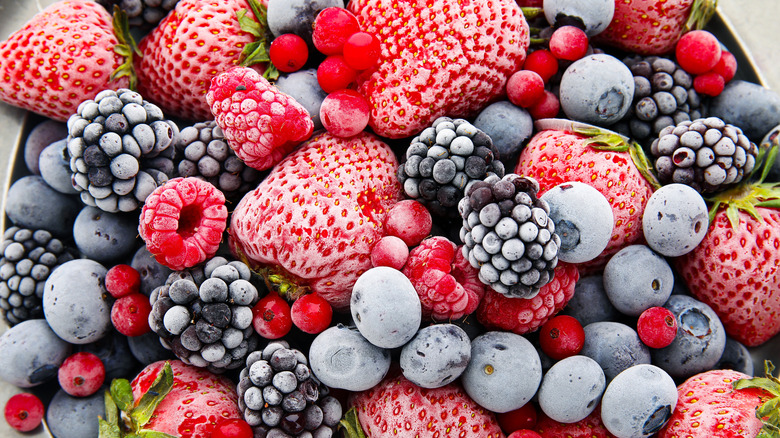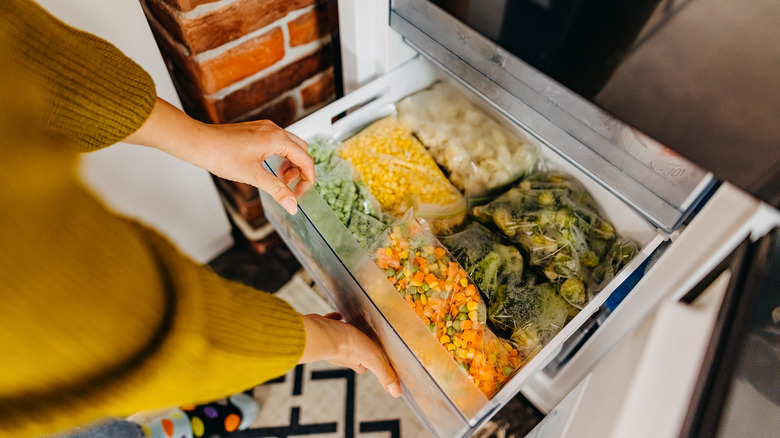The Science Behind Freezing Food: Why It Works To Preserve Almost Anything
Of all the amazing breakthroughs we don't quite appreciate properly, freezing food is near the top. Frozen food brands have a generally terrible reputation, with the collective lingering memory of billions of mushy frozen meals casting a pall over the technological triumph that made it possible. While your breaded chicken may not be as good frozen as fresh, ice-cold temperatures are perfect for preserving soups, sauces, desserts, and all manners of leftovers. Frozen fruits and vegetables often have more nutrients than the "fresh" ones you buy at the grocery store.
Perhaps more than any other invention of the past 200 years, electric freezing and refrigeration changed the way Americans eat. While food has been frozen throughout history, the creation of a new way to preserve food without harvesting actual ice cut down on massive amounts of home labor, and brought food from across the country and the world to American kitchens. But why does freezing food preserve it?
There are actually a number of processes at work all at once that cause food to go bad, and cold temperatures greatly retard most of them. The three big things that break down fresh produce and meat are microbes like bacteria, enzymes naturally present in the food, and oxidation from air exposure. Freezing halts the first process entirely, and slows the second, but doesn't have as much effect by itself on the third. Hindering these processes greatly slows the rate at which food degrades, but doesn't always stop it entirely.
Freezing slows activity from microbes and enzymes
Freezing impedes microorganisms and enzymes through its impact on water, which makes up about 90% of most fruits and vegetables, and around 60-70% of most raw meat and poultry. Extremely cold temperatures slow the movement of molecules, and most of them become dormant. Microbes responsible for spoilage and illness — which include bacteria, mold, and yeast — become inactive while frozen. However, they don't die off entirely and become active again when thawed. That is why you can still get sick from food that has previously been frozen.
Enzymes are in animals, vegetables, and fruit and are responsible for chemical reactions that cause changes like ripening, loss of color, loss of nutrients, and changes in flavor. Freezing does not stop enzyme activity, but does slow it down. This is not an issue for meat, where enzymes do little damage, so frozen meat is technically "good," indefinitely, although the quality will suffer. Fruits also have natural acids that inhibit enzyme activity, so freezing stops their degradation. But freezing does not stop vegetables enzymes, which is why frozen vegetables must be blanched to deactivate enzymes before freezing.
Although freezing protects food from these forces, oxidation is still a problem, which is why frozen foods should be packaged with air-tight seals to protect them from air exposure and freezer burn. But beyond that, the magic of freezing will take good care of most of your food.

